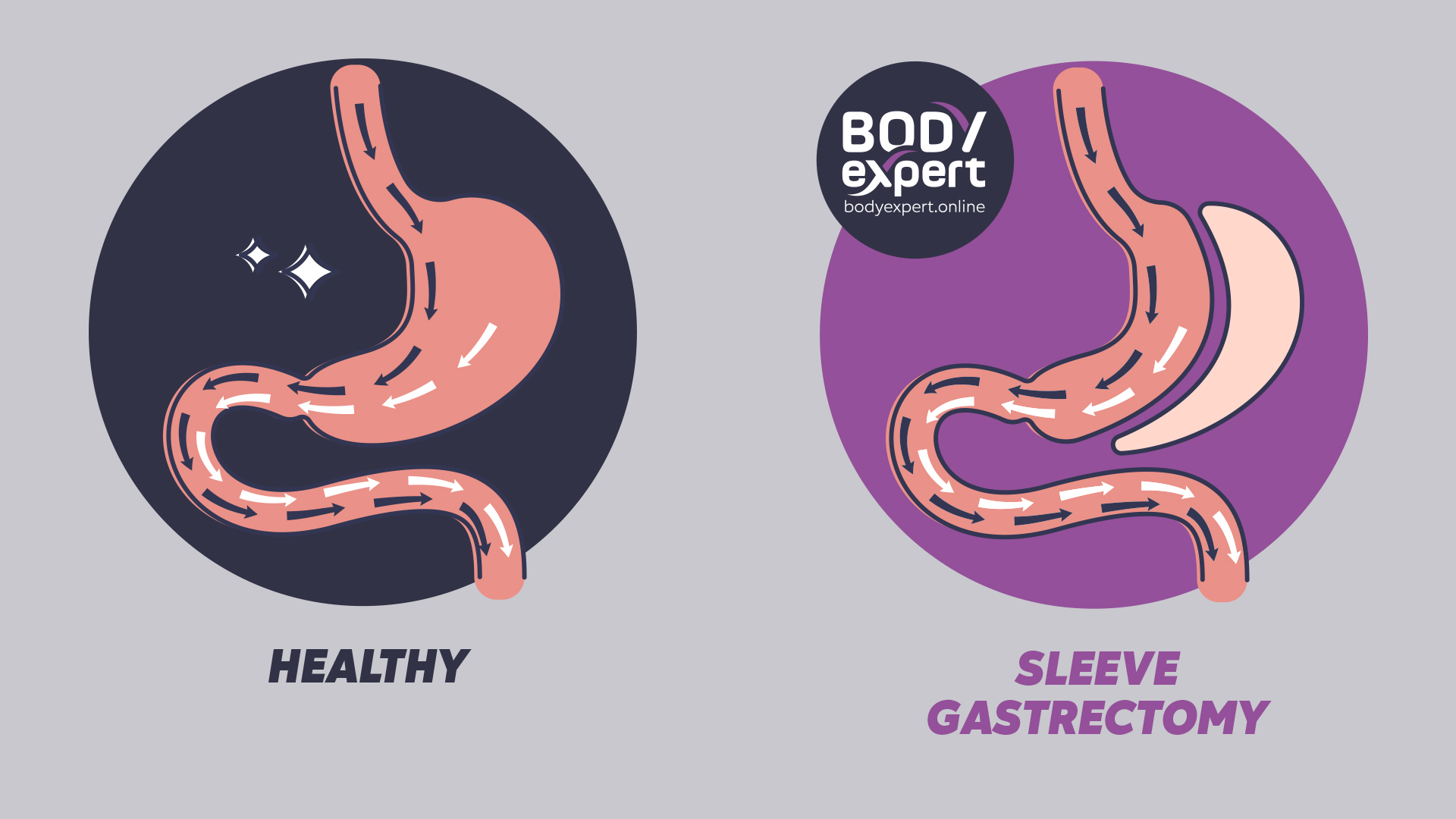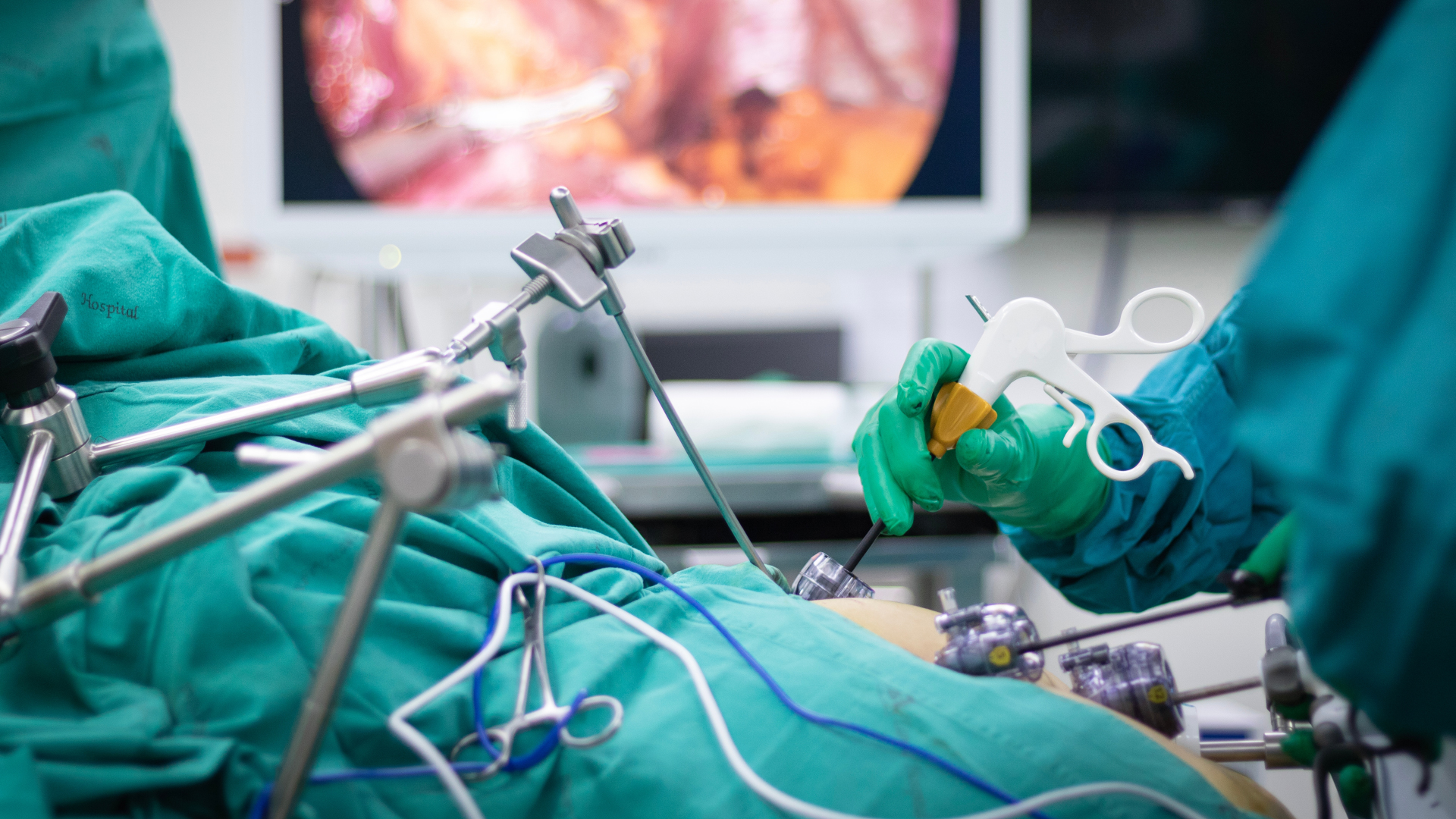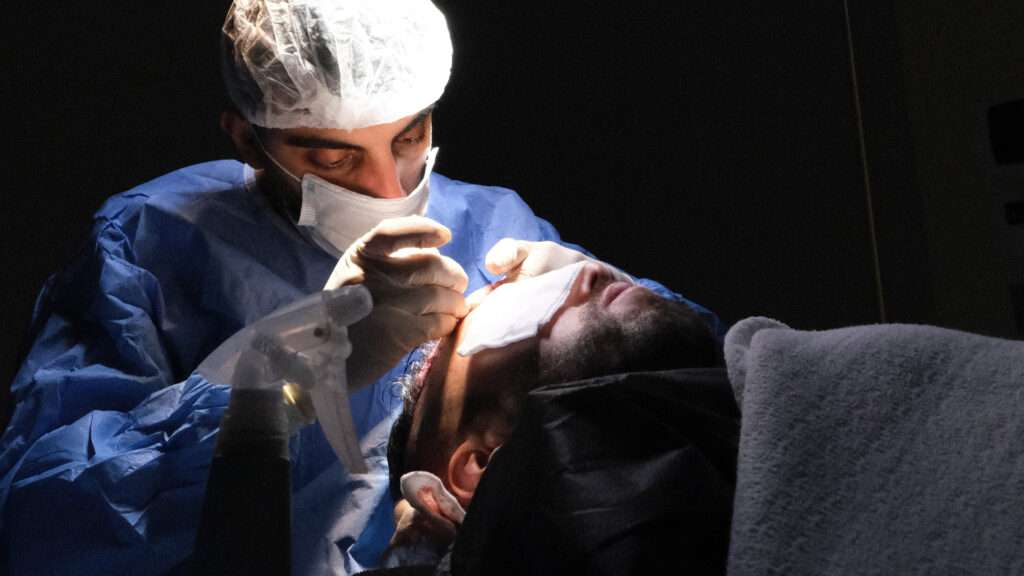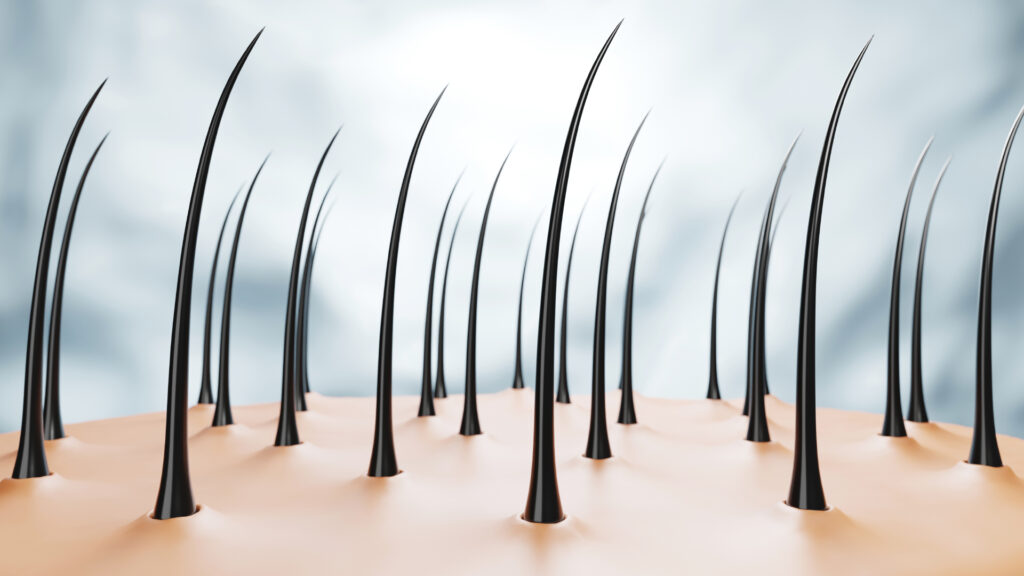A gastric sleeve is a weight loss surgery that involves reducing the size of the stomach. This bariatric surgery procedure is a process that requires preparation before surgery and extensive postoperative care. After this procedure, it is essential to follow the doctor’s recommendations to ensure a quick recovery and minimize the risk of complications. Find out everything you need to know about gastric sleeve surgery and what to do after having it.
What is a gastric sleeve?
Gastric sleeve, also known as longitudinal gastrectomy, is a bariatric surgical procedure for weight loss. It consists of removing 3/4 of the stomach, to leave only the vertical part of it. The goal of this irreversible procedure is to reduce the size of the stomach so that the patient eats less and loses weight.

The gastric sleeve is usually performed under general anesthesia and requires a hospital stay of about 2 to 3 days. After the operation, the patient follows a specific diet, which starts with clear liquids and gradually progresses to solid foods. The diet and lifestyle changes help maintain healthy weight loss after surgery.
Sleeve gastrectomy is generally recommended for people who are morbidly obese, that is, those with a body mass index (BMI) greater than 40. BMI is calculated by dividing a person’s weight in kilograms by the square of their height in meters. However, gastric sleeve surgery may also be considered for people with a BMI between 35 and 40, if they have weight-related health problems.
Potential candidates for gastric sleeve surgery must also have tried more conventional weight loss methods, such as diet, exercise, or medication, without success. Gastric sleeve surgery is generally considered a last resort for people who have difficulty losing weight or maintaining long-term weight loss.
What are the potential consequences and complications of gastric sleeve surgery?
Like any surgical procedure, gastric sleeve surgery has potential risks and complications. Some of the most common consequences and complications of gastric sleeve surgery may include:
- Temporary abdominal pain or discomfort.
- Bleeding, infection or leakage from the suture at the incision line.
- Nausea, vomiting, diarrhea or constipation.
- Nutritional deficiencies, such as vitamin and mineral deficiencies.
- Gastroesophageal reflux or heartburn.
- Changes in digestion, such as dysphagia or gastroparesis.
- Long-term weight gain due to expansion of the residual stomach.
- Depression or emotional problems related to lifestyle and dietary changes.

These complications are usually temporary and can be managed with proper medical follow-up and strict adherence to the recommended diet. Regular medical follow-up after surgery is also important to monitor any changes in health and detect any potential complications early.
What is the postoperative medical follow-up ?
Postoperative medical follow-up after gastric sleeve surgery is essential to help patients recover and maintain long-term weight loss. It may include the following:
- Regular follow-up visits with the bariatric surgeon: patients should schedule follow-up visits with their bariatric surgeon at regular intervals to monitor their progress and overall health.
- Blood tests: Regular blood tests should usually be done to check levels of nutrients such as iron, vitamin B12, vitamin D and calcium, which may be affected by this bariatric surgery.
- Dietary and nutritional counseling: Patients may receive dietary and nutritional counseling to help them follow an appropriate diet and prevent nutritional deficiencies.
- Co-morbidities follow-up: This follow-up is essential to detect complications such as diabetes, high blood pressure and heart disease.

Post-operative medical follow-up after gastric sleeve surgery is essential for each patient to achieve his or her weight loss goals and maintain good overall health. For long-term success and to maintain weight loss, it will be essential to follow the recommendations of the bariatric surgeon.
What diet should you follow after gastric sleeve?
The diet after gastric sleeve is an important part of successful weight loss and maintaining good health. The typical diet after gastric sleeve follows a progressive diet of liquids, purees and solid foods.
The liquid diet
In the first few days after surgery, patients may be limited to liquids such as water, clear broths and unsweetened fruit juices. The goal is to allow the stomach to heal before beginning to ingest solid foods.
The semi-liquid diet
After the clear liquid phase, patients can begin introducing thicker liquids such as fruit juices, pureed soups, smoothies and protein shakes.

The blended diet
Blended foods such as vegetable, fruit and protein purees can be added to the diet after a few weeks. The foods should be well blended and have a pureed consistency.
The tender then normal diet
After a few weeks on the blended diet, patients can gradually switch to a solid diet. Foods should be chewed well and eaten in small portions.

What are some nutritional tips to remember after gastric sleeve surgery?
It is important that patients follow the guidelines of their bariatric surgeon and dietitian to establish a personalized diet to meet their nutrient needs and weight loss goals. Patients should also avoid foods high in fat, sugar and calories to avoid regaining weight after surgery.
After bariatric surgery, and whenever possible, patients are encouraged to consume protein. Protein is essential for healing and tissue regeneration after surgery. Patients should eat protein-rich foods such as lean meats, eggs, legumes, nuts and seeds. It is also advisable to eat vegetables and fruits. Vegetables and fruit are rich in nutrients and fiber. Eating a variety of vegetables and fruits is therefore essential to help maintain good health and prevent nutritional deficiencies.

To avoid overloading the stomach and causing nausea or vomiting, it is recommended to chew slowly and take small bites. It is also advisable to avoid drinking liquids during meals to avoid filling the stomach with liquids that prevent the consumption of solid food. Nevertheless, it is essential to drink enough water to avoid dehydration. Hydration recommendations vary depending on age, gender, weight and physical activity.
Finally, patients may need to take vitamin supplements to avoid nutritional deficiencies, including vitamin B12, iron and calcium.

What are the different key points to remember after gastric sleeve surgery?
After gastric sleeve surgery, there are several key points to remember to ensure optimal recovery and long-term weight loss:
- Engage in regular physical activity: it is recommended to follow a regular exercise program to help maintain weight loss and improve their overall health.
- Maintain a healthy, balanced diet: It is essential to eat a balanced diet and eat slowly in small amounts. Patients should avoid foods high in fat and sugar and eat enough protein, vegetables and fruit.
- Properly follow postoperative instructions: Patients should follow the postoperative instructions given by their bariatric surgeon, including dietary restrictions, hydration recommendations, and activities to avoid.

How to save money on your gastric sleeve surgery
Bariatric surgery, including gastric sleeve, can be expensive. To save money on your sleeve, without compromising on quality of care, you may choose to schedule your surgery in Turkey. The reason more and more people are choosing to have surgery in Turkey is because of the many advantages the country offers. Turkey is a popular destination for gastric sleeve because of its affordable costs, quality of care, shorter waiting times, comprehensive medical stay packages. The cost of gastric sleeve surgery in Turkey is often lower than in Europe. Patients can save up to 70% on the cost of the surgery. Turkey has a modern health care system equipped with state-of-the-art technology. Turkish surgeons are highly qualified and often have the same comprehensive training as in Europe. The country is also able to offer state-of-the-art medical treatments, including bariatric surgery.

If you are considering gastric sleeve surgery, it is essential to understand the risks and benefits of this procedure, as well as to find a qualified and experienced bariatric surgeon to perform the operation. For the best quality of care at the best price, turn to an expert medical surgery agency such as Body Expert.

3409 vues
0 commentaires
0






Il n'y a pas de commentaires pour le moment.